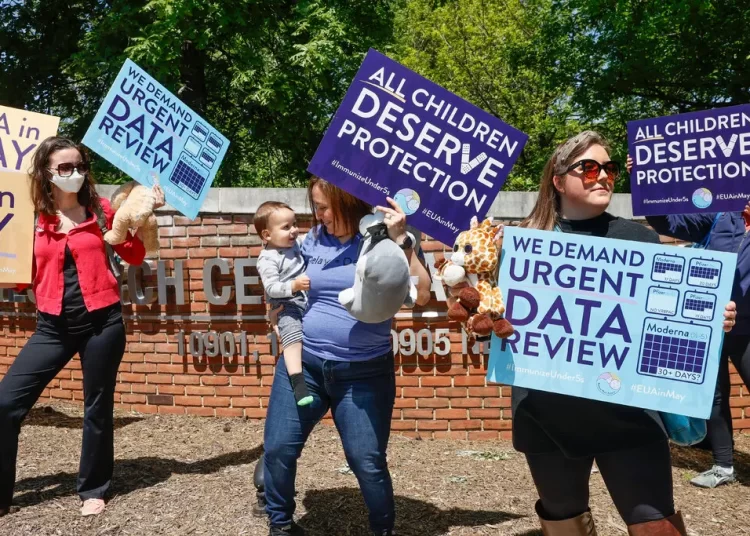NEW YORK – Pfizer and BioNTech said on Monday that preliminary findings of a clinical trial of children younger than five showed three doses of their coronavirus vaccine produced a strong enough immune response to meet the criteria for regulatory authorization, the New York Times reported.
In a news release, the companies announced results from a subset of a trial of 1,678 children ages 6 months through 4 years, saying the three-dose regimen had been 80 percent effective in preventing symptomatic infection.
No supporting data was disclosed, and the companies did not say how many children were in the subset. A spokeswoman for Pfizer said comprehensive results from the trial will be disclosed next month.
Both Pfizer and Moderna are hoping to soon win authorisation to vaccinate the nation’s youngest children. About 18 million children under the age of 5 are the only Americans not yet eligible for vaccination against the coronavirus, and parents’ expectations for when shots will be offered have been repeatedly dashed.
Pfizer and its partner BioNTech said the number of children in the trial who fell ill with Covid was too small to make a definitive statement on efficacy. Only 10 children participating in the trial became ill with Covid after those in the vaccination group were given the third dose. The clinical trial’s protocol specified that analysis of vaccine efficacy required at least 21 Covid cases. The companies said that final data on efficacy, a secondary endpoint for the clinical trial, would be shared “once available.”
The Biden administration had hoped to offer vaccine doses to those under 5 as early as February. The Food and Drug Administration initially pressed Pfizer to submit data on how well two doses worked for young children, but pulled back after Pfizer said two doses were not sufficiently effective in preventing symptomatic infection from the highly contagious Omicron variant.
But Pfizer said that the new results showed that three doses, with the third given at least two months after the second, stimulated the immune system to strongly protect against the virus, with no safety concerns. Researchers said the immune response of the subset of trial participants, measured one month after the third dose, compared favorably to that of people 16 to 25 who received two doses.
“We are pleased that our formulation for the youngest children, which we carefully selected to be one-tenth of the dose strength for adults, was well tolerated and produced a strong immune response,” Dr Albert Bourla, Pfizer’s chief executive, said in a statement. Dr Ugur Sahin, chief executive of BioNTech, said the companies would complete their F.D.A. application for emergency authorisation of the pediatric vaccine this week.






Discussion about this post